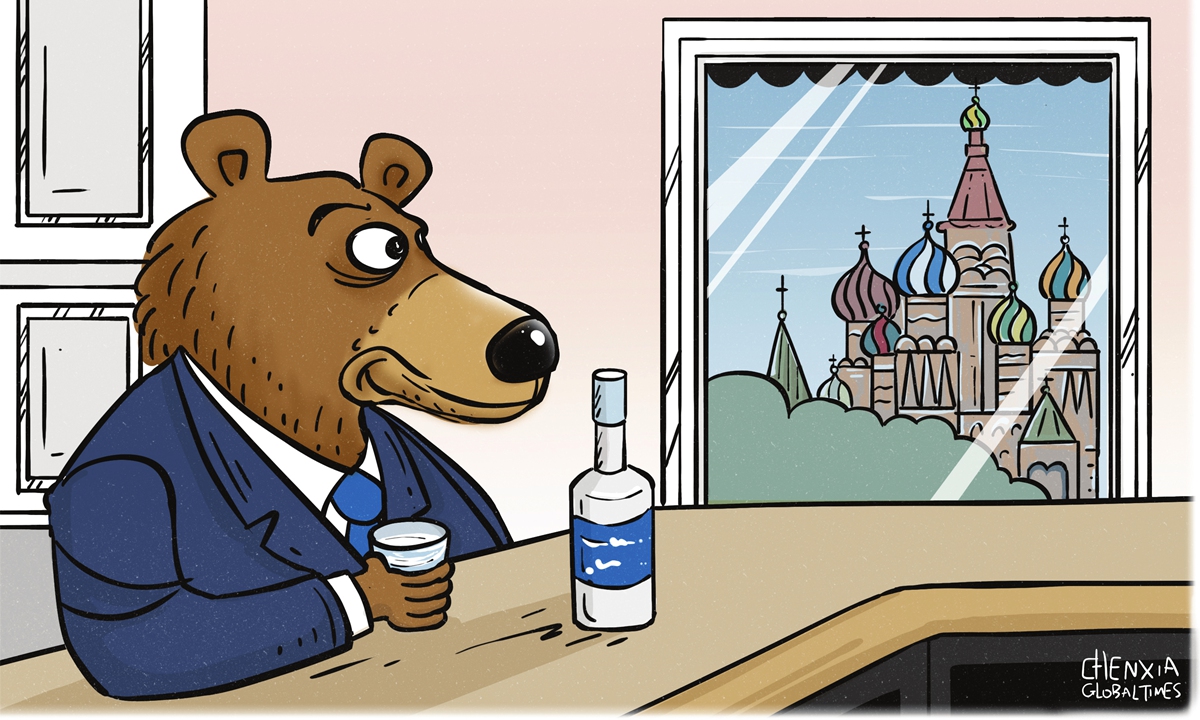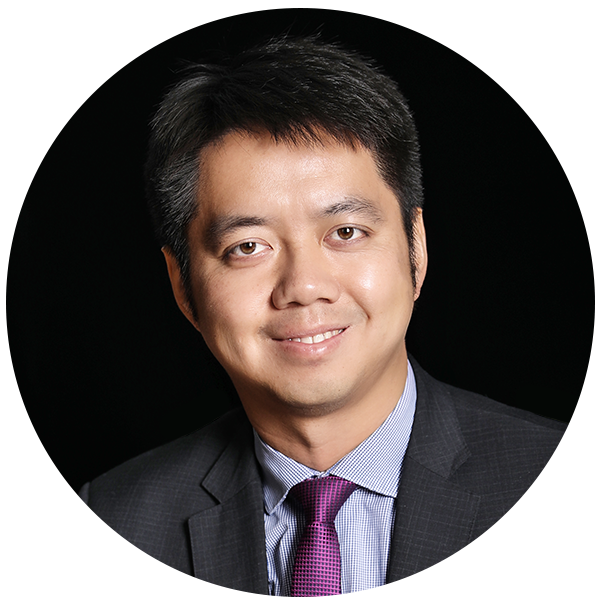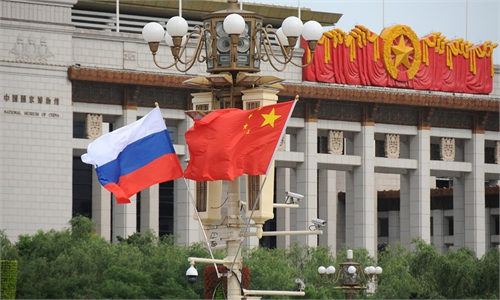Despite pressure, Russia keeps capability for strategic competition

Illustration: Chen Xia/Global Times
I stayed in Russia for half a month and did research across six cities. In all the cities, the residents live a normal life. The lights of the pubs and bars are lit all night as usual.
I stayed in a hotel near Red Square in Moscow. Every morning, I took a run around the square and could feel the tranquility and peace. Occasionally, I saw a tall and bulky security guard stretch himself idly. There was no panic buying in the supermarkets. The currency is stable with no run on banks. The country does not feel like it is at war at all.
War is not the only subject in the minds of the Russians. One day, I walked to a café. On my way, I observed the preparation of lights for annual Moscow City Day celebrations in early September. A friend in China asked me on WeChat: Is there a coup in Moscow? Is Putin stepping down?
I recorded a video right away and said, "I am at the 'coup' scene."
The global opinion, including that in China, has paid excessive attention to the details of the Russia-Ukraine conflict. The field research in Russia tells me that despite that the conflict is considered the largest military clash Russia (and the Soviet Union) has since the end of WWII, and one whose international impact could surpass that of the September 11 attacks and the 2008 financial crisis, it does not generate any obvious or visible impact on the ordinary life of most Russians.
Some may say that the impact of sanctions is huge. Not necessarily. I asked many Russians, they basically said there was little impact. After thinking for a while, they often said, "it becomes difficult to travel in Europe," or "I can't buy some European brands." In fact, most European and US brands can still be found in Russia, like Apple and KFC.
From this major military conflict that does not yet affect domestic daily lives in Russia, we can see the country's stability and the strategic energy Russia has invested in. Russia is like a kung fu master who is able to fight with others, while at the same time looking after kids.
I had been to the ministries of foreign affairs of the US, the UK, Japan, and even Iran, and it was not easy to get in, as I had to go through various checks, show many documents, and be led by someone inside. Unexpectedly, the Ministry of Foreign Affairs of the Russian Federation is the most accessible foreign ministry of a major country that I have ever experienced.
Outside the Ministry of Foreign Affairs building, there are no checkpoints, and not even a policeman. I walked directly into the building from the outside, and the security guard let me go through the gate with smiles after looking at my passport. When I stopped and waited for a person inside to lead me in, I didn't expect the security guard to tell me that I could take the elevator directly to the meeting room 433. Is this the "heavily guarded" foreign ministry of a global military power? I can't believe it.
Common sense tells me that at least Moscow is in a state of "tight on the outside and loose on the inside," like a sports player in a high-intensity competition. Although he is very tense, his muscles and heart are relaxed, which is precisely in a better competitive situation. A prominent Russian scholar told me that Russia has not used even 10 percent of its power in the Russia-Ukraine conflict.
I don't believe the speculation about Russia's defeat. Vladimir Putin has been in power for more than 20 years and has made a vigorous effort to turn around Russia's national destiny. After Russia became independent, it tried to apply to join NATO several times and joined the G7 for a period of time. It could be said that in order to become part of the Western camp, Russia had to submit to humiliation, swallow an insult, and bear it, but in the end, it was suppressed by the West.
For more than 20 years, through Chechnya, Georgia, Ukraine, and other military operations, Russians have felt proud and able to stand up as citizens of a global power, making people feel the thrill of being able to arm-wrestle with the US and even occasionally lead by the nose European and American countries.
In the eyes of many Russians, the past 20 years have been an important period for Russia's national rise and to regain national dignity. They do not think that Russia is currently in a passive position. On the contrary, they believe Russia is still an active player in the resource market, the main operator in the international situation, and is still at the center of the world's political and security arena.
But the question is that Russia has strategic gaming capabilities, but what is Russia's long-term goal? Restoring the Tsardom of Russia? Becoming the next Soviet Union to integrate neighboring countries? Or being a responsible global power? No one knows that and the world desperately needs an answer.
The author is professor and executive dean of Chongyang Institute for Financial Studies at Renmin University of China. opinion@globaltimes.com.cn


